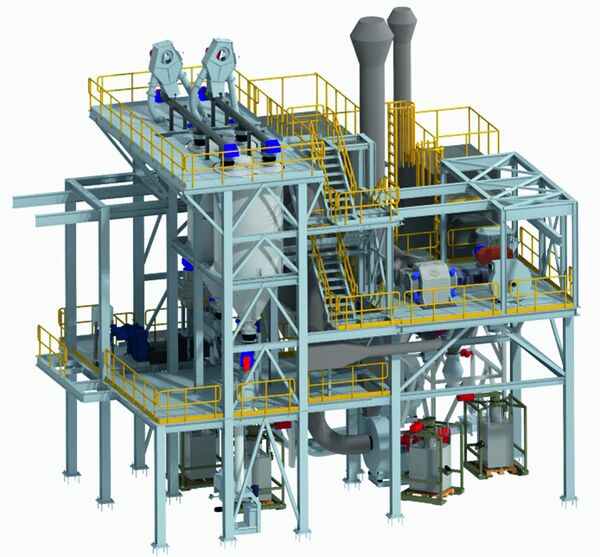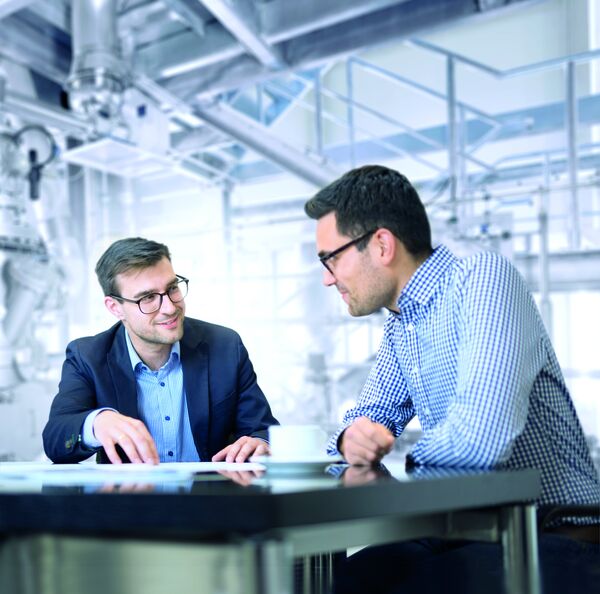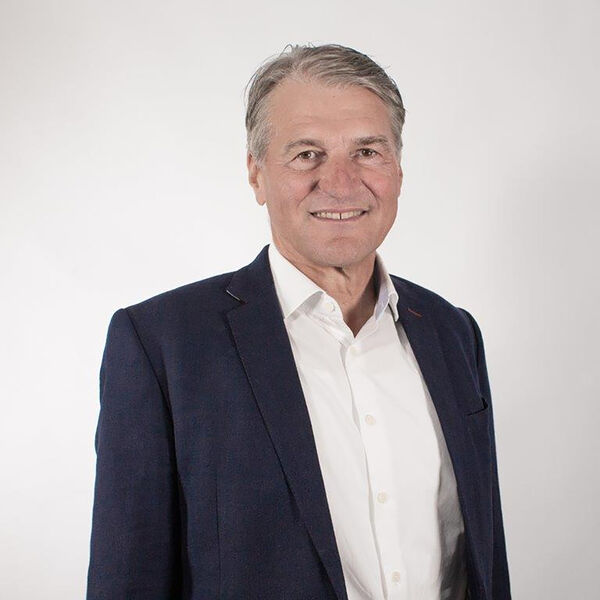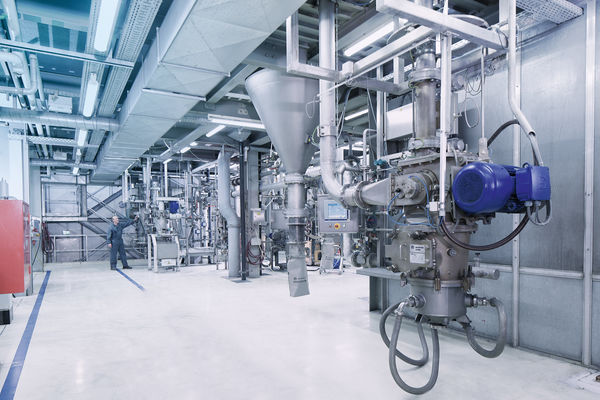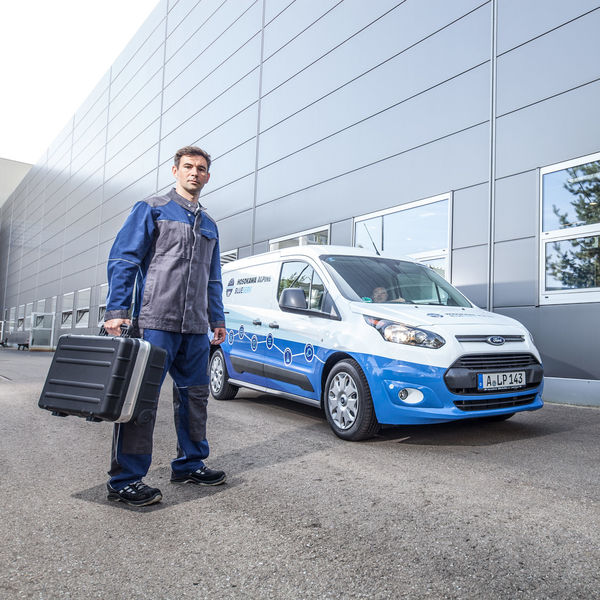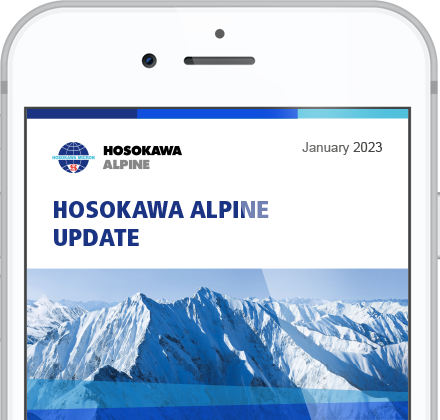Process Consulting from Hosokawa Alpine answers the customer demand for advanced planning and a holistic approach to the entire process. Here, process engineering processes and solution concepts are precisely tailored to customer requirements. This was plain to see for Nobelmin GmbH, a company located in Westendorf near Augsburg.
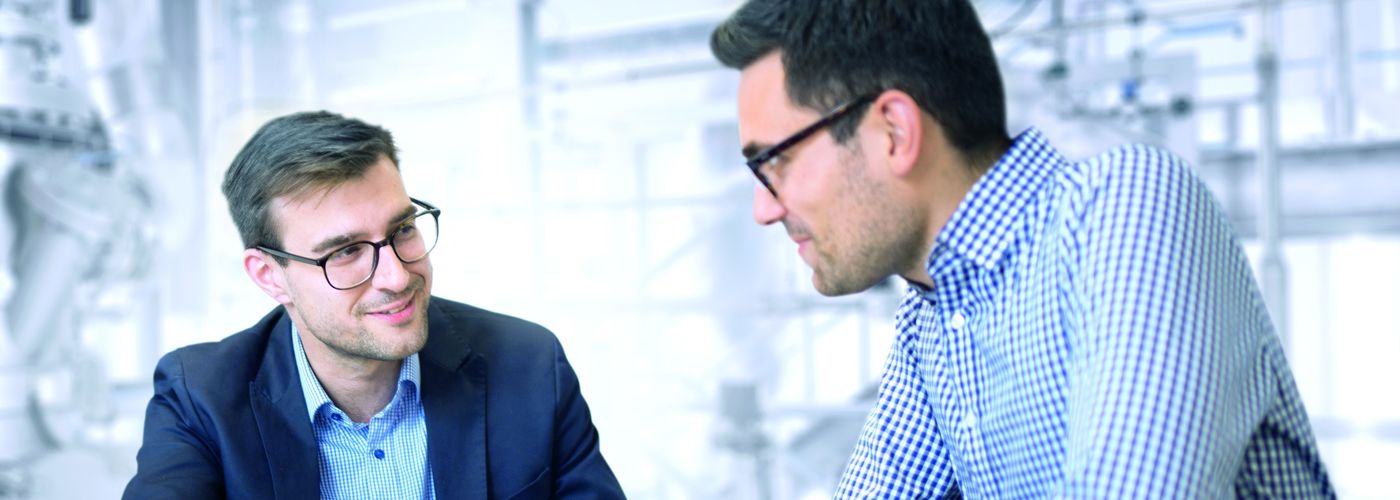
Nobelmin GmbH develops overall process with Hosokawa Alpine
Grinding of talc individually planned form the start“First and foremost, we encourage our customers to join forces with us when it comes to system development and preliminary planning. It's well worth it, even if the challenges appear to be great. The steps that are required in achieving comprehensive system planning are often underestimated. In our opinion, planning a system in advance to a certain degree is advisable for many projects.”
Christian Eisenbarth, Process Consultant Technical Division at Hosokawa Alpine
Process and system development costs time and resources, which is often combined with challenging conditions such as available installation space, necessary machine size or required fineness and grinding technology. Engineering is essential in order for the customer to ultimately achieve the best results. In other words, a holistic approach to the technical planning of a system is needed. However, the know-how required for this is often not available to the customer in-house. Since May 2018, the Process Consulting department at Hosokawa Alpine has been working on exactly these kinds of challenges with a high level of expertise – such as with its recent shared success story with Nobelmin GmbH.
External expertise as a solid foundation for decision-making
In 2012, Nobelmin GmbH acquired a grinding plant in the city of Westendorf near Augsburg in Bavarian Swabia. This is where MinTalc is produced, an ultra-fine ground talcum powder used in the automotive, plastics, paints and coatings industries. MinTalc is added to plastics such as polypropylene to reinforce and stiffen the end material. To achieve this, the powder must first be sifted and compacted after grinding before it is packed.
The challenge at the German site of Nobelmin GmbH in Westendorf was to connect a classifier and a compactor to the existing grinding system, if possible without changing the structural characteristics of the building. At the same time, the plant was to be optimised in terms of energy efficiency and production costs.
“The task was extremely challenging, as Nobelmin GmbH does not have its own engineering resources. Due to its excellent reputation in the industry, we decided to enlist the expertise of Process Consulting from Hosokawa Alpine for the technical process development and system planning,” recalls Michael Österreicher, CFO of Nobelmin GmbH.
Know in advance what to expect
After conducting a needs analysis and clarifying the exact task at hand, Christian Eisenbarth and his colleagues drew up a conceptual design study in order to gather the necessary data for the new site: “Initially, we had no reference processes or specifications available because the customer had not yet started production in Westendorf. The design study allowed us to determine the process engineering requirements for the future plant as well as for the end product. Once we had established the end product specifications, validation tests were carried out.
We then defined the appropriate main equipment and measured the existing hall and facilities. The process and parameters were recorded in a process flow chart. In close coordination with the customer, we also checked the economic aspects with a mass balance for the ROI calculation and validated the business plan,” he explains. In addition, the system was fitted virtually into the existing building in a rough 3D layout and the interfaces to the existing machines were defined.
This was necessary in order to check whether there was enough space for the new system. The results of the design study included a production process tailored precisely to the needs of Nobelmin GmbH, with sifting in two stages and the subsequent compaction process.
The design study was followed by Pre-Engineering. This involved defining and specifying the equipment for secondary processes such as mechanical/pneumatic conveyors, silos, discharge aids, dosing and shut-off devices and the bagging system. “The idea behind pre-engineering is to plan the system far enough in advance so that either a request for tenders can be issued for the system based on the specifications, or that the client can order the components itself and take over further implementation independently,” explains Christian Eisenbarth.
From sketch to commissioning, together with a competent partner
After Process Consulting, Nobelmin GmbH was able to take advantage of an integrated solution: The Minerals & Metals division could be directly entrusted with the delivery, implementation, installation and commissioning on site. This division was then responsible for the detail engineering, assembly and connection of the new system in the overall automation.
An architectural firm was also brought in to convert the building in accordance with the new requirements, including a new hall roof and new foundations.
“As a whole, the project was extremely demanding and shaped by a highly productive collaboration with the customer. Right from the start, we were responsible for all of the parameters and were able to take every production step into consideration in our planning. This helped make the overall process consistent and the customer was able to commission its modern and perfectly coordinated system after only one and a half years of planning," concludes Christian Eisenbarth.
“From the very beginning, our collaboration with the Process Consulting team of Hosokawa Alpine was constructive and solution-oriented. Their technical competence and many years of experience were obvious and strengthened our confidence in having made the right decision”.
Michael Österreicher, CFO of Nobelmin GmbH
Individually planned processes, the best results
The talc is pre-crushed on the system using a hammer mill, after which it is sifted and finely ground. Nobelmin GmbH has been able to achieve a decisive competitive edge because it opted against grinding the talc to the target fineness directly. In conventional methods, this is done on jet mills in an extremely energy-intensive process. In Westendorf, however, the ground material is first mechanically ground and then double sifted. In the first sifting step, an ultra-fine (micronised) product with a narrow particle size distribution is obtained, which is then used in the automotive industry. The resulting coarse material stream is then re-sifted in a second sifting step.
Both sifted materials are separated by filters and mechanically transported into silos. In a subsequent step, the compactor can either be fitted or the end product can be filled directly into 25-litre paper sacks or big bags. This has allowed Nobelmin to become more flexible in responding to customer requests: “By expanding the system, we now have the possibility of producing talcum in a variety of fineness classes to meet the needs of our target markets. In addition, the optimised energy consumption gives us a competitive edge,” says Michael Österreicher of Nobelmin GmbH.
Explore more: All Case Studies | Process Consulting | Testcenter
